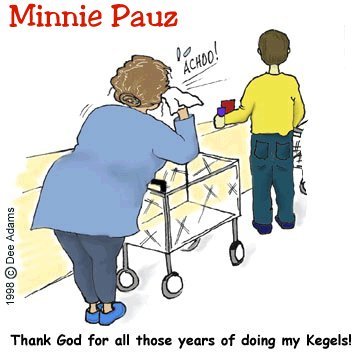Incontinence is the inability to control excretions, to hold urine in the bladder, or to keep faeces in the rectum. Simply stated, it is losing control of your bladder or bowel.
Ask about Quality of Life to a person living with incontinence, and you are sure to find it as an embarrassing reality for the person suffering from it. Incontinence by its very nature can make the person withdraw from family, friends, and avoid socialization in all its forms. Incontinence is usually a symptom of an underlying disorder and various nerve disorders, sensory loss or weakening of muscles is known to cause incontinence. Certain medications or surgery also predispose an individual to the condition. As per statistics presented by the American College of Gastroenterology, there has been an increase in the prevalence of faecal incontinence and that women are more likely to suffer from faecal incontinence. Faecal incontinence is probably the most psychologically and socially incapacitating condition in an otherwise healthy individual, but it is generally treatable.
More than 13 million people deal with incontinence daily, even though it is a correctable problem. While incontinence can be a serious nag requiring persistent attention, it need not interrupt your daily routine.
Following 10 Tips will help you in living confidently with incontinence:
- Kegel Exercises: A key component to managing incontinence is Kegel Exercises for both men and women. Most doctors advocate this simple but effective technique. It involves clenching your pelvic muscles for three seconds, then releasing it for three seconds. Once you are familiar with the technique, gradually increase the number of clenches and releases up to ten.
- Double voiding: Another interesting technique that has proven useful is called “Double Voiding”, wherein you are advised to prolong your stay in the bathroom after voiding for a wee bit longer and trying to void again. This empties the bladder completely, hence delaying the next urge.
- Scheduled Urination/Defecation: Even if you don’t have the urge, make sure you go to the bathroom at regular intervals of one to two hours. This will keep you prepared for the next urge and hence, leaking.
- Obstacle-Free Path: Create an environment free of obstacles to the bathroom to avoid any unwanted accidents.
- Dietary Changes: Cut out on the incipient diuretics in your diet. Caffeine contained in beverages like tea, coffee, chocolate drinks, and carbonated drinks act as diuretic and can cause unscheduled visits to the bathroom more probable. Increased dietary fibre intake helps managing faecal incontinence and reducing dietary fibre can cause constipation, which in turn can aggravate urinary incontinence.
- Regulated Fluid Intake: Its simple math – Input=Output! So, take fluids as much as your body requires, but not too much to keep your visits to the bathroom more than desired.
- Unwanted Effects of Medications: It is all too common that a medication prescribed by your physician is causing the extra leakage. Consult with your physician to find if there is an alternative and if there is no alternative, stay home or wear appropriate diapers.
- Regular Physical Activity: Helps prevent constipation by stimulating muscular activity of the bowel and tones the pelvic floor. A female patient can prevent undue leakage while performing aggressive exercises by putting a tampon, which presses on the urethra to obstruct the leakage.
- Quit Cigarettes: While cigarettes have no direct influence on incontinence, they can induce cough which increases dribbling of urine or leakage of faeces. They may also cause constipation.
- Maintain proper Hygiene: Lack of proper hygiene can be a harbinger of infections – urinary, bowel or both, which in turn can aggravate the symptoms of incontinence. So, change diapers or clean the perineal region regularly.
Remember however that the above pointers cannot replace a physician. So, you are advised to consult with your physician to find out the actual cause of the incontinence. Finding the root cause of incontinence and treating it can be instrumental in your path to freedom from incontinence.

Incontinence Products
Various incontinence products are available which help to maintain proper hygiene of the individual despite these pressing problems, and help prevent infections. These include:
- Absorbent products (incontinent pads or pants)
- Hand-held urinals (Urine collection bottles)
- A Urinary Catheter to drain urine
- Tampons or other devices used in the vagina to prevent dribbling of urine.
Final Words of Advice
Persons with incontinence may often be ridiculed and ostracized in public life, particularly faecal incontinence. “The Silent Affliction” as it is often termed; faecal incontinence can be a cause of concern. Often, the family needs to provide the much needed support to get survive through each day. Urinary incontinence can be a pertinent issue as well if the cause of the problem is not found and treated.
[box type=”note”]Remember that a physician consultation and psychological counseling can allay most of the problems arising out of incontinence, and eventually improve the quality of life of the individual.[/box]
Incontinence must be an extremely difficult condition to manage. Your advice here should help people to manage this better.
Incontinence sure can cause havoc for the individual and his/her family. Support them by sharing this article.
Urinary incontinence can make even a self-assured person feel like a humiliated, bed-wetting child. It can make a healthy, active adult suddenly feel like an invalid. Apart from all the medication and treatment, the family support plays a very important part in the recovery process.